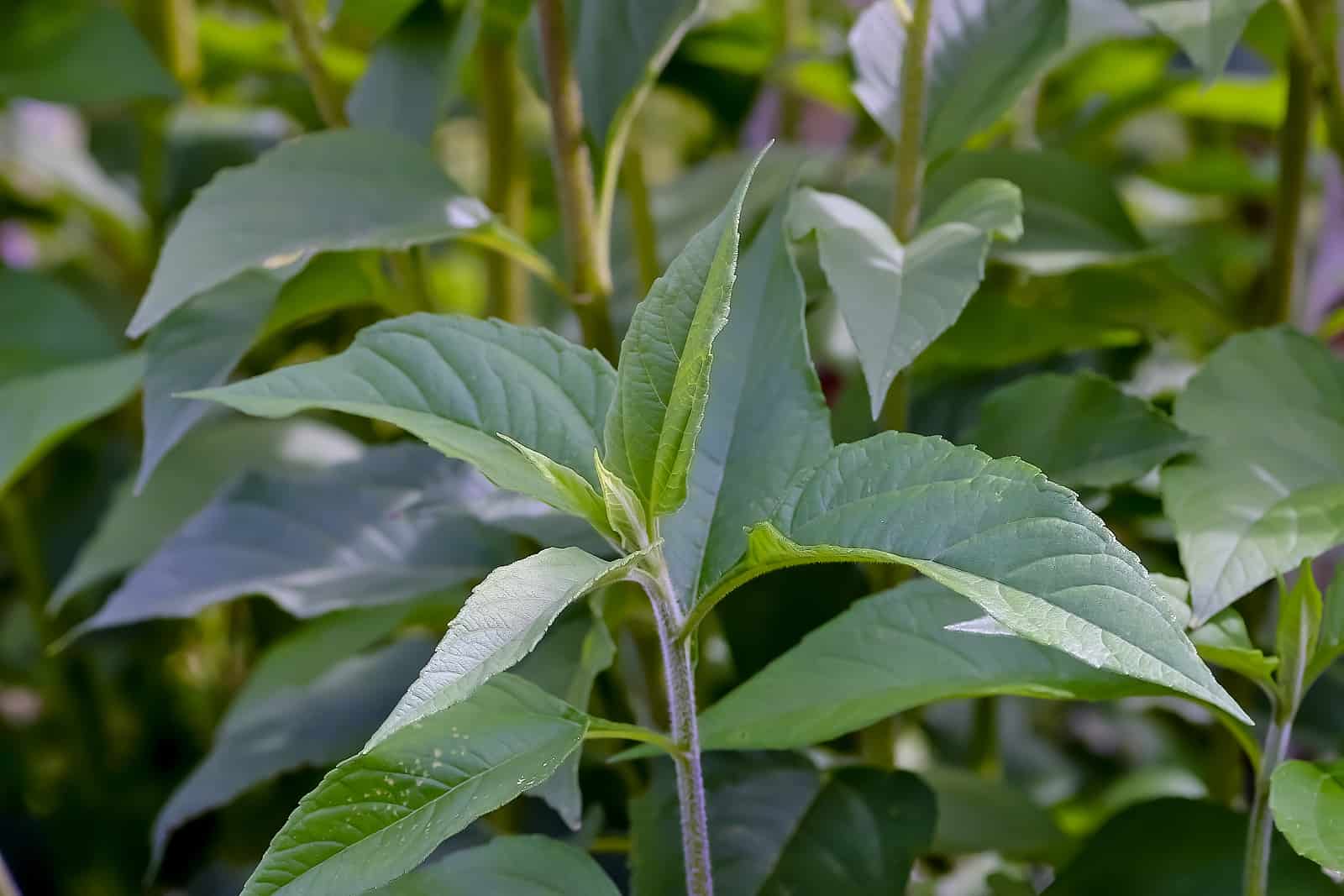
Jerusalem artichokes, also known as sunchokes, are famous for their tubers, but what about their leaves? Jerusalem artichoke leaves might not be as well-known, yet they hold some surprising facts. These leaves, often overlooked, can be quite fascinating. For starters, they are not typically consumed like the tubers, but they do have uses in traditional medicine. Rich in nutrients, they can be used as animal fodder. Additionally, the leaves play a crucial role in the plant's photosynthesis process, helping the tubers grow underground. Ever wondered if they have any unique properties? Yes, they do! Jerusalem artichoke leaves contain compounds that can deter pests, making them a natural defense mechanism. Ready to learn more? Let's dive into 15 intriguing facts about these remarkable leaves.
Key Takeaways:
- Jerusalem artichoke leaves are packed with essential nutrients like fiber, vitamins, and antioxidants, offering potential health benefits and a low-calorie option for culinary use.
- Growing Jerusalem artichokes can have a positive environmental impact, improving soil quality, being drought-resistant, and contributing to carbon sequestration efforts against climate change.
What Are Jerusalem Artichoke Leaves?
Jerusalem artichokes, also known as sunchokes, are tuberous roots from a type of sunflower. While the tubers are well-known, the leaves also hold interesting facts worth exploring.
-
Edible but Bitter: Jerusalem artichoke leaves are technically edible, but their bitter taste makes them less popular for culinary use.
-
Nutrient-Rich: These leaves contain essential nutrients like vitamins A, C, and K, along with minerals such as potassium and iron.
-
Medicinal Uses: Historically, the leaves have been used in folk medicine to treat various ailments, including skin irritations and digestive issues.
Nutritional Benefits
Jerusalem artichoke leaves are packed with nutrients that can benefit your health in several ways.
-
High in Fiber: The leaves are a good source of dietary fiber, which aids in digestion and helps maintain a healthy gut.
-
Antioxidant Properties: Rich in antioxidants, these leaves can help combat oxidative stress and reduce the risk of chronic diseases.
-
Low in Calories: For those watching their calorie intake, Jerusalem artichoke leaves are a low-calorie option that can be included in various dishes.
Environmental Impact
Growing Jerusalem artichokes can have a positive impact on the environment.
-
Soil Improvement: The plants help improve soil quality by adding organic matter and promoting beneficial microbial activity.
-
Drought-Resistant: Jerusalem artichokes are drought-resistant, making them a sustainable crop choice in areas with limited water resources.
-
Carbon Sequestration: These plants can capture and store carbon dioxide from the atmosphere, contributing to efforts against climate change.
Culinary Uses
While not commonly used, Jerusalem artichoke leaves can be incorporated into various dishes.
-
Tea: The leaves can be dried and used to make a herbal tea that offers a unique flavor and potential health benefits.
-
Salads: Young, tender leaves can be added to salads for a slightly bitter, earthy taste.
-
Cooking Greens: Similar to other leafy greens, they can be sautéed or steamed and used as a side dish.
Unique Characteristics
Jerusalem artichoke leaves have some unique features that set them apart from other plants.
-
Sunflower Family: These leaves belong to the sunflower family, which is evident in their broad, rough texture and appearance.
-
Seasonal Growth: The leaves grow seasonally, appearing in late spring and lasting until early fall.
-
Pest-Resistant: The leaves are naturally resistant to many common pests, reducing the need for chemical pesticides.
Final Thoughts on Jerusalem Artichoke Leaves
Jerusalem artichoke leaves might not be the first thing that comes to mind when thinking about this versatile plant, but they hold their own unique benefits. Packed with nutrients, these leaves can be a great addition to your diet. They offer fiber, vitamins, and minerals that contribute to overall health. Plus, their antioxidant properties can help fight off free radicals.
Using these leaves in your cooking can add a new dimension to your meals. Whether you sauté them, add them to soups, or use them in salads, they bring a fresh, earthy flavor. Just remember to wash them thoroughly before use.
So, next time you come across Jerusalem artichokes, don't just focus on the tubers. Give the leaves a try and enjoy the added health benefits they bring to your table.
Frequently Asked Questions
Was this page helpful?
Our commitment to delivering trustworthy and engaging content is at the heart of what we do. Each fact on our site is contributed by real users like you, bringing a wealth of diverse insights and information. To ensure the highest standards of accuracy and reliability, our dedicated editors meticulously review each submission. This process guarantees that the facts we share are not only fascinating but also credible. Trust in our commitment to quality and authenticity as you explore and learn with us.


